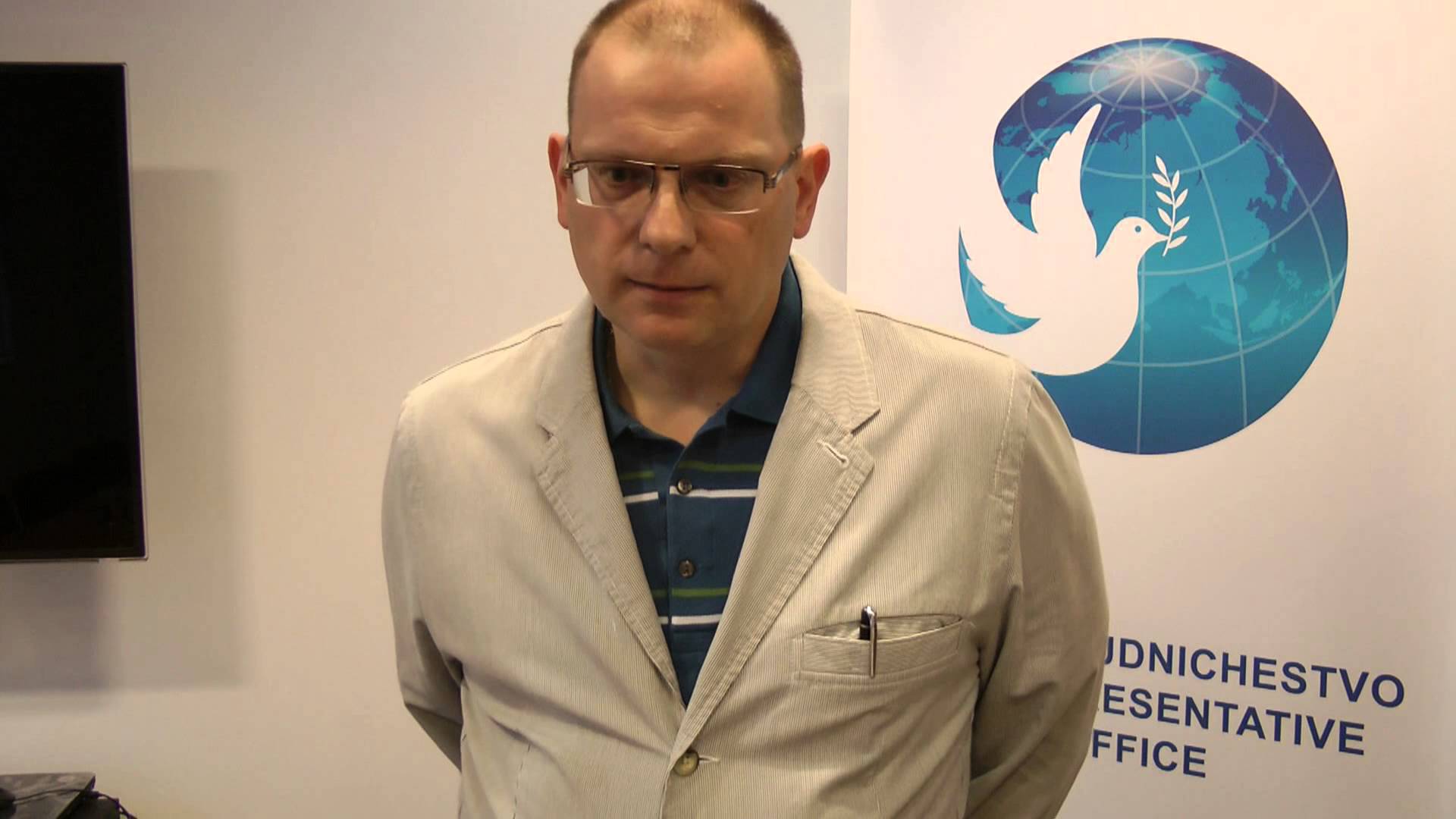Today we may more and more often hear about a lot of pro-Russian politicians and public figures here in Europe as well as ordinary European citizens sympathizing to Russia. Strange to say, this happens despite obvious violations of the democratic rights and freedoms by Russia both in relation to their own national and to other states. Perhaps, phenomenon of such benevolence partly can be explained with arduous efforts of numerous organizations of Russian compatriots abroad and effective public diplomacy under the framework of which various non-governmental funds, associations, unions and other organizations interact. Moreover, Russia actively uses their USSR successor status for strengthening sympathies and advancing specific state foreign policy goals at the public and interpersonal levels.
Activity of the Russian Federation aimed at worldwide creation and functioning of the Russian-speaking communities (which, by the way, Russia afterwards heroically protects), is coordinated by the state agency which is financed from the state budget and strictly follows the party line. That is the Federal Agency for the Commonwealth of Independent States Affairs, Compatriots Living Abroad and International Humanitarian Cooperation, or simply Rossotrudnichestvo, founded in 2008. Today it governs a network of 98 Russian centers of science and culture as well as network of representative offices in the Russian Embassies. In addition, Rossotrudnichestvo covers all organizations for compatriots abroad and finances public diplomacy projects.
Since 2014, after President of Russia signed the Concept of State Policy of the Russian Federation in the field of the Assistance to International Development (Presidential Decree No. 259 of April 20, 2014) Rossotrudnichestvo officially became a leader of Russian “soft power”. Moreover, all international financial aid passes through this Federal Agency.
The most known program is the “New generation”, a program of short-term study tours to Russia. It is designed for young social and political activists, scientists, representatives of printed and electronic media, of scientific and business community of the foreign states. The purpose of this program is deepening public, business and scientific relations between the Russian Federation and the foreign states, promotion of the “objective” perspective of the social and political, economic and other transformations in the Russian society by the world community. Moreover, extension of a circle of active foreign young citizens who are positively-spirited in relation to Russia and their attraction to participation in strengthening of partnership with these states that is the most important for the Russian Federation.
However, that is only foreside of this activity, while behind the curtain we may see active recruitment of prospective agents of influence who will further hold important positions in civil service and carry out “personal commissions” from authorities and business circles for lobbying the Russian projects and advance interests of Russia and its representatives.
To make the picture complete, it is worth showing statistics: only in 2017 about 1 000 delegates from 100 countries visited Russia under the “New Generation” program, between 2011 and 2017 – by 5 000 delegates. Perhaps in the future someone of them will turn into one more Gerhard Schröder, Sigmar Gabriel, Miloš Zeman, Viktor Orbán, Alexis Tsipras, Marine Le Pen or Jean-Pierre Chevènement.
Another diplomatic trick has already become the lever of political pressure. Since 2016, Rossotrudnichestvo successfully has introduced the Concept of the Federal Target Program “Russian Language” integrated in January, 2018 into the Sate Program of the Russian Federation “Education Development”. This program primarily is aimed at improvement of conditions for strengthening and spread of Russian in the CIS states. For this purpose, the Agency is assigned with a task to ensure deliveries of not only textbooks and manuals on Russian, but also of Russian-language magazines and other printing editions abroad. In addition, it holds major, socially important events popularizing Russian and extending sphere of its influence as well as a possibility of Russian-language education in foreign states. That makes the Russian-speaking audience, capable of absorbing and understanding “the high purposes” of the Russian state, and of their subsequent support growing exponentially.
Here is only a short list of the actions financed by Russia in the name of world expansion. This year the initiative of the Diplomatic Academy of the Russian Minister of Foreign Affairs “Global Challenges 2018” started in Moscow, the International BaltArtek Youth Educational Forum is organized in the Kaliningrad region, the Russian-Balkan Youth Forum will take place in Ryazan; Academy of Young Leaders will hold meeting in Bulgaria, the “Russians in Paris” project is launched in Paris. The prime purpose of such events in consolidation of the young compatriots’ efforts aimed at advancing of the purposes of “the Russian world” abroad and creating preconditions for cooperation development with the foreign states.
It should be noted that promotion of the Russian interests abroad is also supported by the World Association of Graduates of the Russian Higher Education Institutions. In 2017, the European forum of graduates was held in Berlin with the support of the World Association and Rossotrudnichestvo. In 2018, this forum will be hosted by Serbia. Many foreign graduates of above-mentioned higher education institutions hold important positions in their states, are engaged in public, commercial, research and cultural work. It gives to the Russian Federation the chance to prepare political elite and to lay the foundation for further beneficial foreign policy for Russia.
Formally, in the eyes of the third parties, this cultural and humanitarian activity is no different for example from the activity of the Goethe-Institute, Confucius Institute or the Open Society Foundations (the latter, by the way, are accused by Russia of intelligence activities in favor of the USA) being focused both on assistance in studying and advance of great Russian language and establishing interaction between the states which does not contradict the European democratic values. However, when analyzing numerous programs and actions of Rossotrudnichestvo, it becomes clear that using the methods of the former KGB USSR, Russia creates worldwide the “islands” of subversive activities, propaganda, and possible expansion of territories for the purpose of the Russian-speaking population protection (http://tinypic.com/r/33arxhl/9). Therefore, all of us should look closely at the activity of the so-called “national diplomats” otherwise it would be late.


